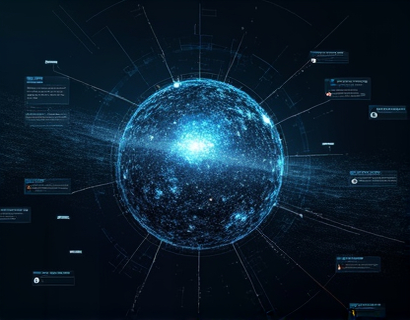Streamline Operations and Boost Productivity: A Next-Gen Management Solution for Any Industry
In today's fast-paced business environment, the ability to streamline operations and boost productivity is crucial for success. Organizations across various industries face unique challenges that can hinder their growth and efficiency. A next-generation management solution is essential to address these challenges and optimize workflows, ensuring sustained success in a competitive market. This article delves into the importance of such solutions and how they can transform business management.
Understanding the Need for Advanced Management Solutions
The modern business landscape is characterized by rapid changes, technological advancements, and increasing competition. Traditional management practices often struggle to keep up with these dynamics, leading to inefficiencies and missed opportunities. Advanced management solutions are designed to bridge this gap by providing tools and insights that enhance decision-making, improve process efficiency, and foster a culture of continuous improvement.
These solutions are not one-size-fits-all; they are tailored to meet the specific needs of different industries. Whether you are in manufacturing, healthcare, retail, or any other sector, a next-gen management solution can be customized to address your unique challenges. The key is to find a system that integrates seamlessly with your existing processes and provides actionable insights to drive meaningful change.
Key Features of a Next-Gen Management Solution
A robust management solution encompasses a range of features that collectively contribute to streamlined operations and enhanced productivity. Some of the most critical features include:
- Real-time Data Analytics: Access to up-to-date data allows managers to make informed decisions quickly. Real-time analytics provide insights into various aspects of the business, from financial performance to operational efficiency.
- Automated Workflows: Automation reduces manual errors and frees up staff to focus on higher-value tasks. Automated workflows ensure that processes are consistent and efficient, reducing the time and effort required to complete tasks.
- Collaboration Tools: Effective collaboration is essential for team success. Advanced management solutions offer tools that facilitate communication, project management, and document sharing, ensuring that everyone is on the same page.
- Customizable Dashboards: Customizable dashboards provide a visual overview of key performance indicators (KPIs) and metrics. Managers can monitor progress, identify bottlenecks, and take corrective actions in real-time.
- Integration Capabilities: Seamless integration with existing systems and third-party applications ensures a smooth transition and maximizes the benefits of the new solution. Integration capabilities are crucial for maintaining data consistency and avoiding silos.
Optimizing Operations Across Industries
One of the greatest strengths of a next-gen management solution is its versatility. Here’s how it can benefit different industries:
Manufacturing
In manufacturing, operational efficiency is paramount. A management solution can optimize production schedules, monitor equipment performance, and manage inventory levels. Real-time data analytics help in predicting maintenance needs and reducing downtime, while automated workflows ensure that quality control processes are followed consistently.
Healthcare
Healthcare organizations face complex regulatory requirements and the need for high-quality patient care. A management solution can streamline patient scheduling, manage electronic health records, and optimize resource allocation. Real-time analytics can help in monitoring patient flow, reducing wait times, and improving overall service delivery.
Retail
Retail businesses must manage inventory, customer relationships, and sales efficiently. A management solution can provide insights into sales trends, optimize stock levels, and enhance customer experiences through personalized marketing. Automated reporting tools help managers make data-driven decisions to boost sales and customer satisfaction.
Service Industry
In the service industry, customer satisfaction is key to long-term success. A management solution can streamline service delivery processes, manage customer interactions, and track employee performance. Real-time analytics enable managers to identify areas for improvement and implement changes quickly, ensuring high service standards.
Benefits of Implementing a Next-Gen Management Solution
The benefits of implementing a next-gen management solution are numerous and far-reaching. Some of the most significant advantages include:
Improved Efficiency: By automating repetitive tasks and optimizing workflows, businesses can reduce operational costs and increase productivity. Employees can focus on strategic initiatives rather than mundane tasks.
Enhanced Decision-Making: Access to real-time data and comprehensive analytics empowers managers to make informed decisions quickly. This agility is crucial in a fast-paced business environment.
Increased Collaboration: Collaboration tools break down silos and foster a culture of teamwork. This leads to better communication, faster problem-solving, and higher team morale.
Better Customer Experience: Streamlined processes and personalized interactions result in a superior customer experience. This can lead to increased customer loyalty and positive word-of-mouth.
Scalability: A next-gen management solution is designed to grow with your business. As your organization expands, the solution can adapt to new challenges and requirements without compromising performance.
Implementing a Management Solution: Best Practices
Implementing a new management solution requires careful planning and execution. Here are some best practices to ensure a smooth transition and maximize the benefits:
1. Define Clear Objectives: Clearly outline the goals and expected outcomes of the implementation. This will guide the selection of the right solution and the measurement of success.
2. Involve Stakeholders: Engage key stakeholders from various departments to ensure the solution meets the needs of all users. Their input is invaluable in tailoring the solution to your specific requirements.
3. Choose the Right Vendor: Select a vendor with a proven track record, strong customer support, and a flexible approach to customization. A good vendor will provide ongoing support and updates to keep the solution relevant.
4. Train Employees: Comprehensive training is essential to ensure that employees are comfortable using the new tools. Provide ongoing support and resources to help them maximize the solution's capabilities.
5. Monitor and Adjust: Continuously monitor the solution's performance and gather feedback from users. Be prepared to make adjustments and fine-tune processes to achieve the best results.
Conclusion
In conclusion, a next-gen management solution is a powerful tool for any organization looking to streamline operations and boost productivity. By leveraging advanced features and tailored to specific industry needs, these solutions can drive significant improvements in efficiency, decision-making, and customer satisfaction. Embracing such a solution is not just about keeping up with the competition; it's about positioning your business for long-term success in a rapidly evolving market.











































